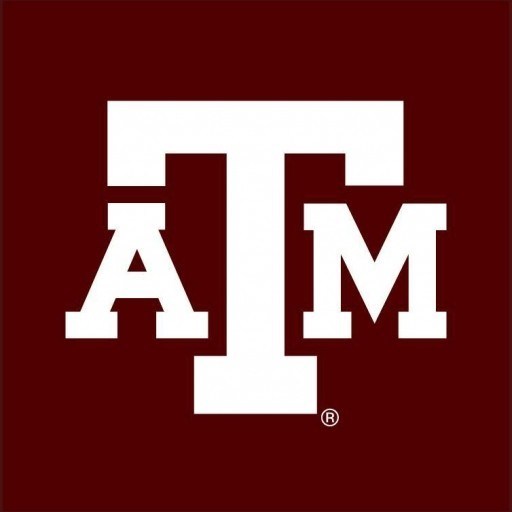Photos of university / #uscedu
The Master of Science in Spatial Informatics at the University of Southern California is an innovative and interdisciplinary program designed to equip students with a comprehensive understanding of the principles and applications of spatial data analysis, geographic information systems (GIS), remote sensing, and spatial data management. This program emphasizes the integration of information technology, data science, and geographic sciences to address complex spatial problems across various sectors including urban planning, environmental management, transportation, public health, and business analytics. Students will develop advanced skills in spatial data collection, processing, visualization, and analysis, enabling them to generate actionable insights and support decision-making processes. The curriculum combines theoretical coursework with hands-on projects, internships, and research opportunities, fostering practical skills and fostering a deep understanding of spatial informatics concepts. Graduates of this program will be prepared for careers in government agencies, private industry, consulting firms, and research institutions, where they can contribute to smarter urban development, resource management, disaster response, and sustainable development initiatives. The program is designed for individuals with backgrounds in geography, computer science, environmental science, engineering, or related fields who seek to deepen their expertise in spatial data analysis and information systems. Through collaboration with industry partners and access to cutting-edge tools and technologies, students will stay at the forefront of advancements in the rapidly evolving field of spatial informatics. The Master of Science in Spatial Informatics at USC offers a comprehensive academic experience that combines theoretical knowledge with practical application, preparing graduates to become leaders and innovators in the spatial data domain.
A minimum of 32 units with an overall cumulative GPA of at least 3.0 is required for the MS in Spatial Informatics. Students should consult with an academic adviser prior to registering for any classes.
Required Courses (6 courses/24 units)
Foundation (take both courses):
- INF 549 Introduction to Computational Thinking and Data Science Units: 4
- SSCI 581 Concepts for Spatial Thinking Units: 4
Spatial core (take both courses):
- SSCI 580 Spatial Computing Units: 4
- SSCI 583 Spatial Analysis Units: 4
Informatics core (take both courses):
- INF 510 Principles of Programming for Informatics Units: 4
- INF 550 Overview of Data Informatics in Large Data Environments Units: 4
Spatial and Informatics Elective Courses (2-3 courses/8 units)
SSCI 596 and ENGR 596 are optional.
Spatial elective (4 units)
- SSCI 582 Spatial Databases Units: 4
- SSCI 584 Spatial Modeling Units: 4
- SSCI 588 Remote Sensing for GIS Units: 4
- SSCI 589 Cartography and Visualization Units: 4
- SSCI 596 Internship in Spatial Sciences Units: 1 **
Informatics elective (4 units)
- CSCI 587 Geospatial Information Management Units: 4 *
- ENGR 596 Internship in Engineering Units: 1
- INF 552 Machine Learning for Data Informatics Units: 4
- INF 553 Foundations and Applications of Data Mining Units: 4
- INF 554 Information Visualization Units: 4
- INF 555 User Interface Design, Implementation, and Testing Units: 4
- INF 559 Introduction to Data Management Units: 3
Note:
*SSCI 582 meets the CSCI 585 prerequisite for CSCI 587 and must be taken before it.
**SSCI 596 may be taken in addition to one of the 4-unit SSCI elective courses, but SSCI 596 by itself does not fulfill the Spatial Sciences elective requirement.
- An undergraduate degree in science, technology, engineering, math or a related social science from a regionally-accredited university.
- Programming experience or a strong math background are required for admission.
- Satisfactory cumulative undergraduate GPA (grade point average)
- Satisfactory GRE test scores. All scores must be officially reported to the university directly by ETS.
- Transcripts: Official transcripts from all colleges and universities attended
- GRE General Test: Satisfactory scores less than five years old. Official scores must be reported from ETS directly to USC using ETS school code 4852. A department code is not required
- Letters of Recommendation (Optional): Letters of recommendation should be from faculty or others (supervisors, professional colleagues, etc.) qualified to evaluate your potential for graduate study. They should be submitted through the online graduate application.
- Statement of Purpose (Optional): The statement of purpose should describe succinctly your reasons for applying to the proposed program at the Viterbi School of Engineering, your preparation for this field of study, study interests, future career plans, and other aspects of your background and interests which may aid the admissions committee in evaluating your aptitude and motivation for graduate study.
- Résumé or CV (required)
- English Language Proficiency: In addition to the general admission criteria listed above, international students whose first language is not English are required to take the TOEFL or IELTS examination to be considered a candidate for admission. There is no minimum TOEFL or IELTS score required for admission to the Viterbi School. For possible exemption from additional language requirements, you must achieve an Internet Based TOEFL (iBT) score of 90, with no less than 20 on each section or an IELTS score of 6.5, with no less than 6 on each band score.
The University of Southern California offers various financing options for students enrolled in the Spatial Informatics program. These include traditional federal financial aid, such as Pell Grants and Stafford Loans, which are available to eligible undergraduate students. Graduate students may access teaching assistantships, research assistantships, or departmental fellowships that provide tuition waivers and stipends. USC also participates in the Federal Work-Study Program, allowing students to work part-time on or off campus to support their educational expenses. Many students finance their studies through private loans, which can be obtained through lenders approved by USC's Financial Aid Office. The university encourages applying for scholarships and merit-based awards offered by the school or external organizations to offset costs. International students are advised to seek private funding options or scholarships specific to their country of residence, as federal aid is generally not available to them. The USC Financial Aid Office provides detailed guidance on the application process, eligibility criteria, and deadlines for all financial assistance programs. Financial planning resources and counseling are available to help students manage their budgets and make informed decisions about borrowing and repayment. Additionally, the university offers payment plans that enable students to divide tuition bills into manageable installments throughout the semester. Students are encouraged to complete the Free Application for Federal Student Aid (FAFSA) annually to determine their eligibility for need-based aid. Overall, USC aims to make Spatial Informatics education accessible by combining federal, state, institutional, and private financial resources to support students throughout their academic journey.
The Master of Science in Spatial Informatics at the University of Southern California is a comprehensive program designed to prepare students for careers in the rapidly evolving field of spatial data analysis and geographic information systems (GIS). The curriculum emphasizes the development of skills necessary to analyze, interpret, and visualize spatial data to support decision-making in various sectors, including urban planning, environmental management, transportation, and public health. students have the opportunity to engage with cutting-edge technology and methodologies, such as remote sensing, spatial databases, machine learning, and cartography.
The program typically combines coursework, practical projects, and research opportunities to provide a well-rounded education. Students learn about spatial data collection, data quality assessment, spatial analysis techniques, and the ethical considerations involved in working with geographic information. The faculty comprises experts in GIS, geospatial science, urban planning, and computer science, offering a multidisciplinary perspective that enriches the learning experience. Facilities include state-of-the-art GIS labs equipped with advanced software and hardware to support hands-on learning and research activities.
Graduates of the Spatial Informatics program are equipped with the skills needed to address complex spatial problems across various industries. Alumni often find employment in government agencies, technology firms, consulting companies, and academic institutions, contributing to urban development, disaster response, environmental sustainability, and more. The program may also offer opportunities for internships and collaborative projects with industry partners, providing valuable real-world experience and professional networking opportunities. Overall, USC’s Spatial Informatics program prepares students to become leaders in the geospatial technology sector, driving innovative solutions for pressing societal challenges.










